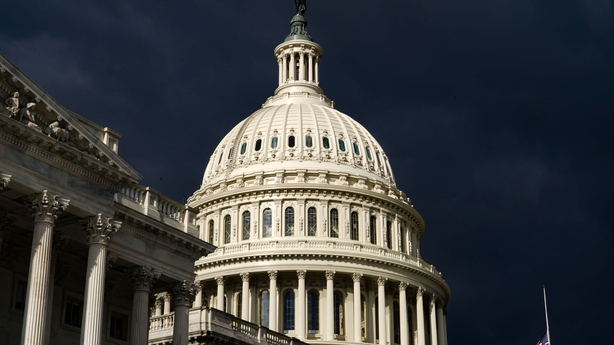US Defense Secretary Lloyd Austin was released from hospital after undergoing treatment under general anaesthetic for bladder issues as he battles prostate cancer, the Pentagon said.
Mr Austin's latest health scare came weeks after it emerged the 70-year-old had kept recent hospital stays secret and had not promptly informed President Joe Biden of his cancer diagnosis, sparking widespread criticism.
The White House and Congress have been notified of his return to work, the Pentagon said.
The statement quoted doctors at the Walter Reed National Military Medical Center outside Washington who said Mr Austin had been admitted on Sunday with "discomfort and concern from a bladder issue related to his December 2023 prostate cancer surgery."
"His condition indicated a need for close monitoring by the critical care team and supportive care. His diagnostic evaluation identified the cause of his bladder issue and it was corrected with non-surgical procedures on 12 February," they said.
"He remained in good condition throughout and no longer needed critical care monitoring. He progressed well and was discharged to his home today."

The statement echoed previous Pentagon explanations that the bladder issue was unrelated to the cancer itself, but rather to the treatment of it.
Mr Austin is a key figure in efforts by the United States to shore up Western support for Ukraine's fight against Russia's invasion, as key republicans in Washington refuse to fund new military aid to Kyiv.
He had been scheduled to attend a meeting in Brussels of the Ukraine Defence Contact Group of nations coordinating military assistance, but the Pentagon cancelled those plans and announced the meeting would instead be virtual.
Defence Department officials said Mr Austin was still planning to give opening remarks at the virtual version of the gathering.
Mr Austin's health issues come with the United States facing an escalating crisis in the Middle East sparked by the 7 October attack on Israel by Hamas militants.
He vanished from public view as he underwent cancer treatment in December and again in January after he suffered complications.
Mr Austin has gained a reputation as an apolitical official who eschews the spotlight, which he said played into his decision to keep his cancer diagnosis secret.
He publicly apologised for not revealing the hospitalisations, and the administration has launched investigations into how the chain of command operates when senior officials are incapacitated.
"Frankly, my first instinct was to keep it private. I don't think it's news that I'm a pretty private guy, I never liked burdening others with my problems," he said.
National Security Council spokesman John Kirby was asked by reporters if President Biden had any concerns over Mr Austin's ability to continue in his job, and he replied: "Not at all."

